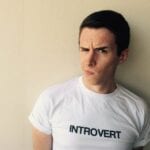
Coming out is really important, as a way of giving visibility to your identity and disclosing who you are in the hopes you will show others they can live openly. So here it is: I’m going to come out right now — I’m an atheist.
Okay, maybe that won’t be news to my friends; I’m a bit of a notorious lapsed-Catholic, anti-religionist among those who know me. But I was inspired to come out a bit more publicly as an atheist by a recent Politico Magazine piece called “The Last Taboo,” which explores the difficulties of being openly atheist in American politics, looking at the career of Barney Frank, an openly gay atheist and retired member of the US House of Representatives from Massachusetts.
I realized I couldn’t think of a single openly atheist Canadian politician, though a quick Google/Wiki search reveals three: Dale Jackaman, a BC politician and business owner; Bloc Québécois MP Gilles Duceppe; and Quebec Premier Pauline Marois, of the Parti Québécois, notable for its discriminatory policies under Marois’s leadership.
So that was a bit of a bust. I fully support secularism, but with a humanist (as opposed to fascist) approach. Luckily, the gay atheist community has someone to look up to in Stephen Fry.
“The fact that almost all animals in the wild live under stress, with not enough to eat, and will die violent and bloody deaths,” Fry says in the Big Think video. “There is not any way you can just choose the nice bits and say, ‘That means there’s a God.’”
A lot of us who have experience in dating can probably relate.
Aside from Fry, British former soap-opera actor Michael Cashman, a member of the European Parliament, is another high-profile openly gay atheist. Luckily, Cashman takes a more nuanced approach to politics than PQ politicians: “I always have to defend the religious believer, because if I don’t my rights cannot be defended.”
Of course, all those mentioned above are of the same generation, white and affluent, which leaves me wanting more diverse voices.
None are wholly saints or demons. Atheism is part of their larger identities, motivations and histories. What I took from “The Last Taboo,” by Jennifer Michael Hecht, a self-proclaimed Jewish atheist, is that while labels are an important part of who we are, it’s our choices that define the change we create.

 Why you can trust Xtra
Why you can trust Xtra


